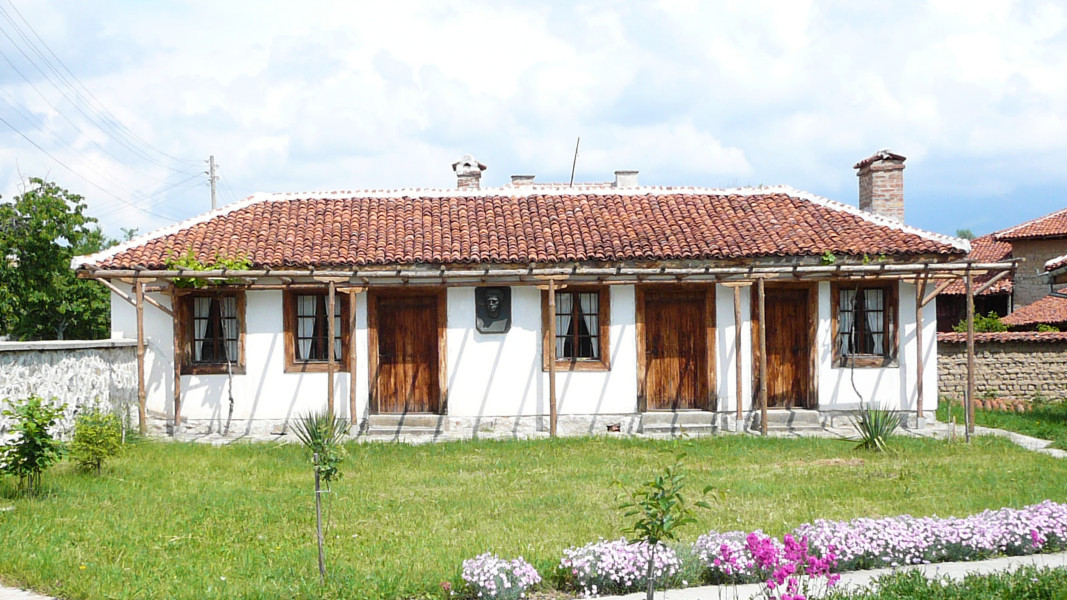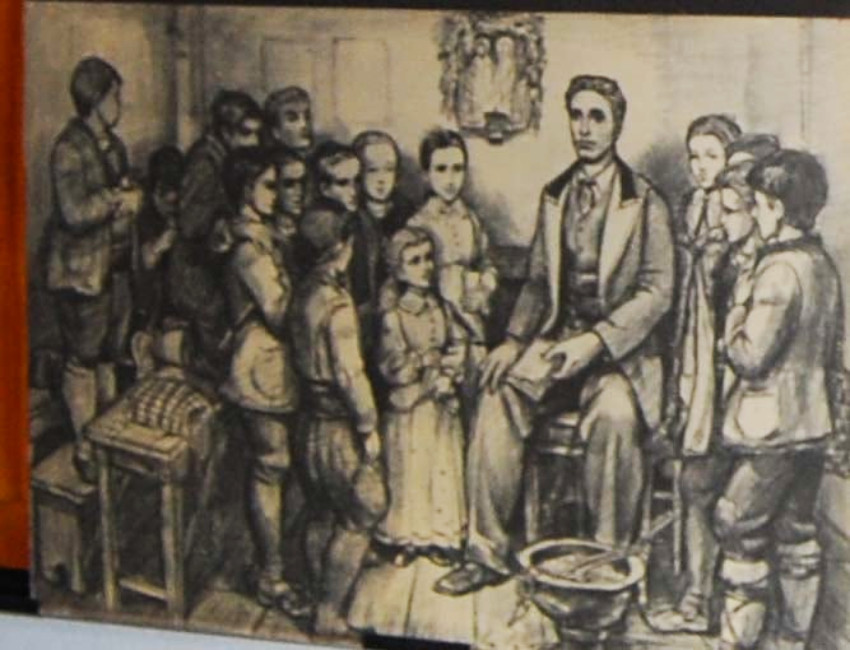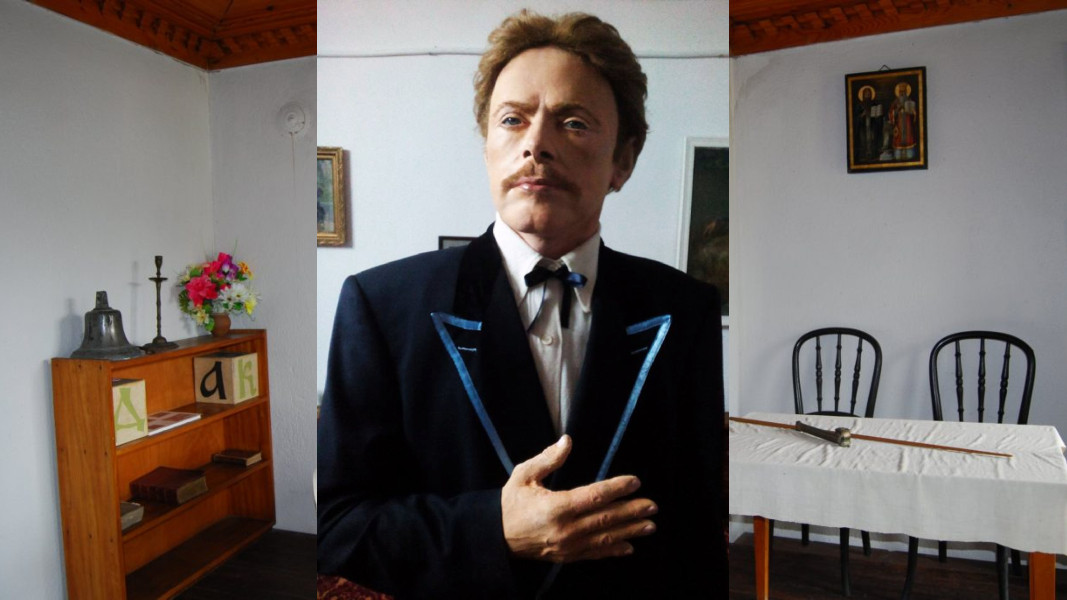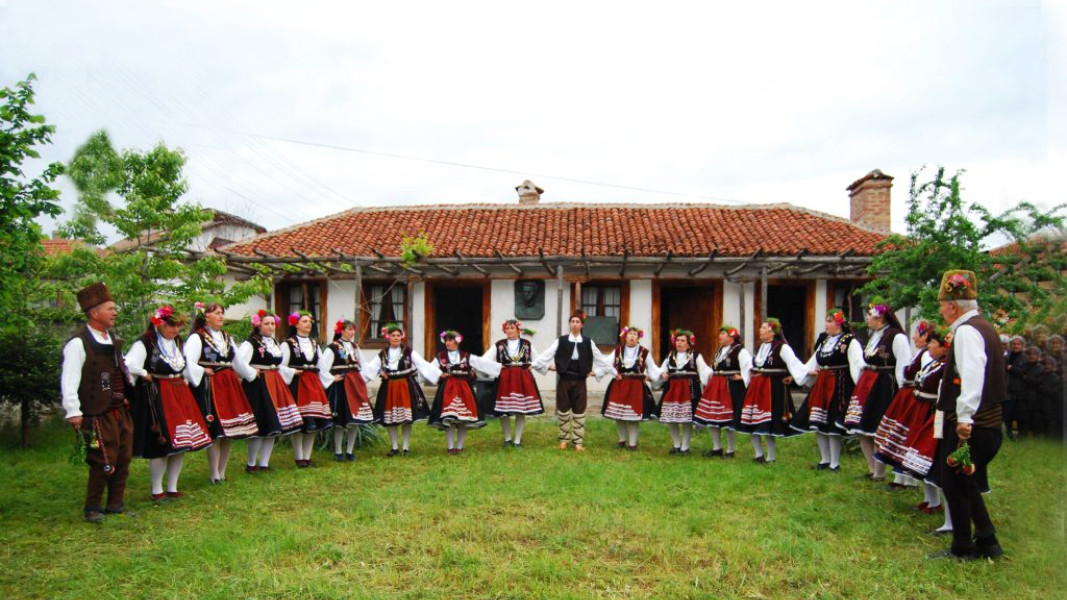Levski, The Apostle, Deacon Ignatius... These are just some of the names by which people know Vasil Ivanov Kunchev (18 July 1837 – 18 February 1873), the national hero of Bulgaria, who has become a symbol of struggle for freedom and independence. He is also known as "Daskala" (The Teacher), but few know that he started being called this way because of his teaching activity in the village of Voynyagovo, not far from his hometown of Karlovo.

"He was a teacher here and the people of the village expressed their respect by calling him 'Daskal',” says Tsonka Damyanova, secretary of the "Vasil Levski 1900" Community Center in the village. "It is not by chance that Vasil Levski chose the village of Voynyagovo. As a child he often visited the village because his uncle had a shop there. When another of his uncles, who was a hieromonk, found out that the people of Voynyagovo were looking for a teacher, he recommended Vasil.”
The young man taught in the village for almost 2 years - from May 1864 to the end of March 1866. He had 19 students, of whom the youngest was 6 and the oldest was 26 years old. He taught them not only reading and writing, but also love for the homeland, freedom and tolerance for others.

"Once he did an experiment by putting a dog, a kitten and a lamb together in a cage. At first there was a struggle, but later these three animals began to live together. In this way he showed his students that all people, regardless of faith and language, can live peacefully together. He never used punishment and managed to motivate children to learn what he wanted,” Tsonka Damyanova continues her story. “He put two boards in the classroom. On the ‘board of honor’, which was white in color, he wrote the names of those children who were studious and attentive and the black ‘board of reprimand’ was for those who did not pay enough attention. He told them that if he saw a child's name written twice on the reprimand board, that child would not be his student anymore. People say he never wrote a child’s name on the board of reprimand.”
Voynyagovo also preserves the story of the love of the future Apostle of Freedom for a beautiful lass named Yova. The 16-year-old girl was one of the most beautiful girls of the village. When Vasil Levski left Voynyagovo, chased by the Ottomans, he promised his beloved one: "When freedom comes, I will come back here and make you a teacher too!" Yova waited for him for 3 years, but was forced by her parents to get married to another man. When the young Levski learned of this, he met Yova once again, presented her with a beautiful pearl necklace as a gift and said: "Forgive me, Yova, freedom has been late."
"In the beginning, few knew about this love because the elderly people in the village took an oath not to reveal anything from the personal life of their 'Daskal' as he was a sacred figure for them,” Tsonka Damyanova says. “But when 100 years passed, people decided that they have to tell the story so that it can be preserved for the future generations."
When the news that their beloved teacher was hanged by the Ottomans reached Voynyagovo, the church bell tolled for a whole week. Yova started wearing mourning clothing for years to come. The other women in the village took off their colorful headscarves and started wearing black ones. And they continue to wear such scarves to this day…
The only school in Bulgaria where Levski was a teacher was restored back in 1957 and turned into a museum. A new building, which houses the community center and the museum collection dedicated to the history of the village, was also erected. One can see Levski’s pen and the books he used as a teacher. There is also a wax figure of the hero, a gift by artist Dimitar Bakardzhiev on the occasion of the 180th anniversary of the Apostle's birth.

"Voynyagovo keeps many good memories of Levski,” Tsonka Damyanova continues. “On May 6, St. George's Day, we do a reenactment and we celebrate the anniversary of his appointment as a teacher here. On this day the church is full of people; the school yard is also full. We pay tribute and strive to pass on his covenants and love for him and the homeland to future generations.”

The memory of Levski is alive in Voynyagovo also through his favorite songs. One of them was "Nedko li, Nede". Here is a performance of the song by the children's folklore ensemble at "Vasil Levski 1900" community center in the village of Voynyagovo.
English version: Al. Markov
Photos: "Vasil Levski 1900“ Community Center
THIS PROJECT IS REALIZED WITH THE FINANCIAL SUPPORT OF THE BULGARIAN MINISTRY OF CULTURE
From 16 September, the History Museum in Panagyurishte will be hosting the original Panagyurishte Gold Treasure. The priceless find will be displayed in the museum’s secure vault hall, where it can be seen until October 23. The treasure will be on..
On September 14, the Bulgarian Orthodox Church bows down before the cross on which Jesus Christ was crucified . The Exaltation of the Holy Cross of the Lord or Cross Day is one of the 12 great Christian holidays. It is one of the four days..
Today, Bulgaria celebrates the 140th anniversary of the Unification of the Principality of Bulgaria and Eastern Rumelia. The center of the festivities is Plovdiv, where on this day in 1885, after the entry of the Golyamo Konare detachment into the..

+359 2 9336 661
